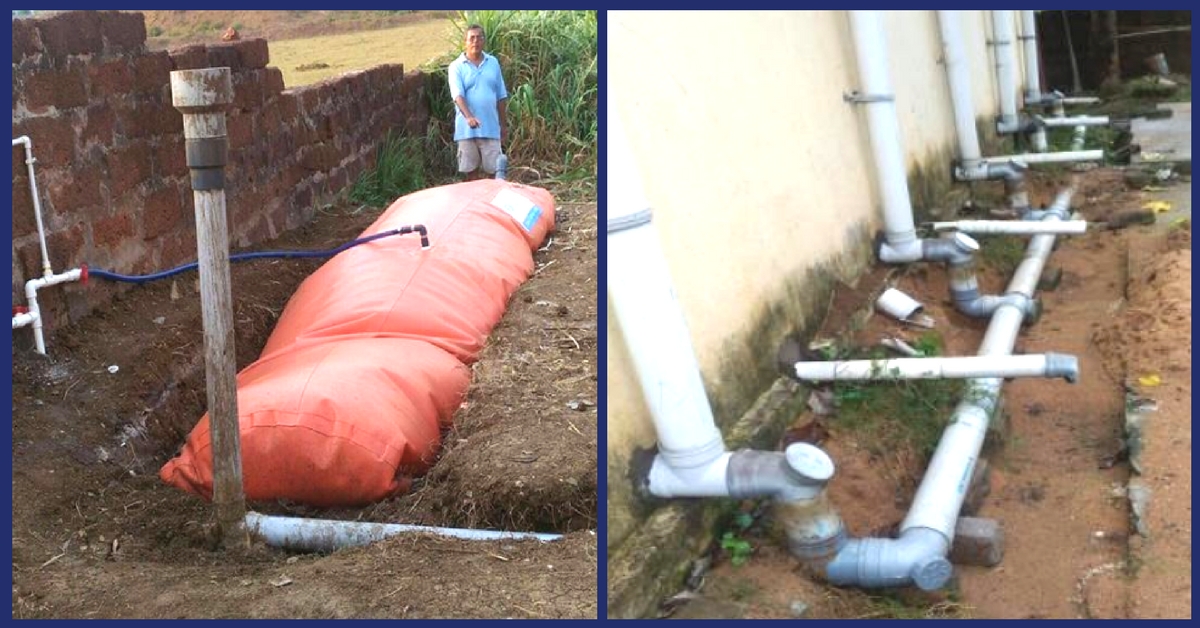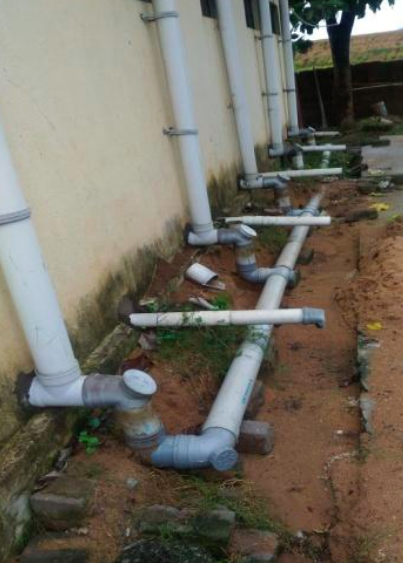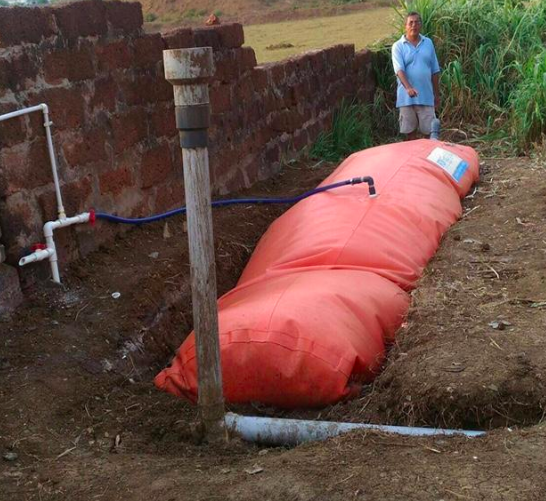2 Friends and an Experiment in Odisha Tap a Underused Fuel Source – Human Waste!
This organisation has managed to create energy out of human waste, using toilet biogas systems– here's how it worked in one children's home!

Converting human waste into energy is not a new idea, but social acceptance has been a problem in India. So, when Father Joseph Philip showed interest in constructing toilet-based biogas units; we believed that the time had come to put the idea into action.
Father Joseph runs a hostel for 80 tribal boys in Duburi, a village in the Jajapur district of Odisha. We had previously set up two small biogas units for him, but these were run on cow dung, a well-accepted source of energy. Using biogas created from human waste was a different challenge, but, fortunately, we had the full support of Father Joseph.
We started by connecting the exterior pipes of 10 toilets of one block (see picture 1). The connecting pipe carried the toilet waste to the balloon-shaped Swedish-designed biogas digester (see picture 2).
Methane generated by the waste in the digester was piped to the hostel kitchen for cooking.

The 6-cubic meter biogas unit produces the equivalent of 18 cylinders of liquefied petroleum gas (LPG) per year. The hostel uses 72 to 78 cylinders per year. The savings from the biogas installation works out to Rs 14,400, or about 24% of the hostel’s annual LPG expenditure.
Father Joseph is delighted with the savings. The cost of setting up the toilet biogas was Rs 80,000. This cost will be recovered in five years, and the slurry from the biogas unit will fertilise his vegetable garden.
However, setting up toilet biogas did have its own challenges.
Cleaning toilets with chemical disinfectants was one. Releasing this water and chemicals into the digester would have killed the microbes that generate gas, so we had to insert a valve to divert this water away from the digester and into a drain.
Also Read: Six Success Stories in India That Will Show You How Biogas Can Save Money, the Environment, & More!
Dealing with the human mindset over human waste was another issue. We had to construct the toilet biogas when the boys were on summer holiday, in part, because of concern that they might not be able to do their business in the toilets if they learnt what happened to their waste!
To overcome this concern, we incorporated an inlet pipe through which cow dung could be poured inside the balloon-shaped digester to give an impression (at least initially) that the biogas was being run on cow dung.
It turned out this concern was not a big problem. The biogas is working fine, and the boys are doing their business!
There was also concern about the presence of pathogens in the slurry that flows out of the biogas unit, which can be used as liquid fertiliser. We sent the slurry to a laboratory in Nagpur for a chemical analysis, and we were greatly relieved to see that the report indicated the absence of E.coli and other toxic substances.
The successful working of the toilet biogas has generated interest in some other hostels and ashrams. A girl’s hostel wants a similar biogas system, and a request has also come from Talasari, Maharashtra.
Our next step is to build a toilet biogas in the girl’s hostel, and we plan to invite Mr Parameshwaran Iyer to come and take a look at what we have done.

Mr Iyer is Secretary, Ministry of Drinking Water and Sanitation, and also heads the Swachh Bharat Abhiyan (Clean India Mission).
We see great possibilities for toilet biogas across the country. We believe this idea can be expanded across India, and our slogan is “The energy of 1.3 billion people should not go to waste!”
(Written by Narendra Jindal and Emmanuel D’Silva)
Like this story? Or have something to share?
Write to us: [email protected]
Connect with us on Facebook and Twitter.
NEW: Click here to get positive news on WhatsApp!
If you found our stories insightful, informative, or even just enjoyable, we invite you to consider making a voluntary payment to support the work we do at The Better India. Your contribution helps us continue producing quality content that educates, inspires, and drives positive change.
Choose one of the payment options below for your contribution-
By paying for the stories you value, you directly contribute to sustaining our efforts focused on making a difference in the world. Together, let’s ensure that impactful stories continue to be told and shared, enriching lives and communities alike.
Thank you for your support. Here are some frequently asked questions you might find helpful to know why you are contributing?


This story made me
-
97
-
121
-
89
-
167













